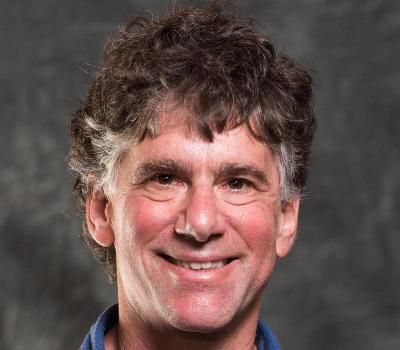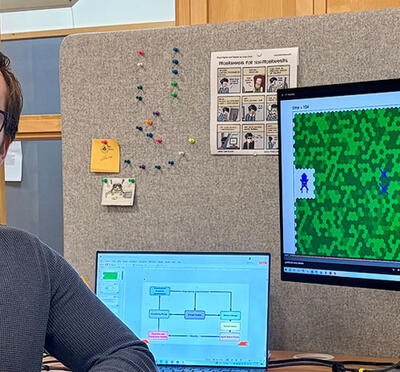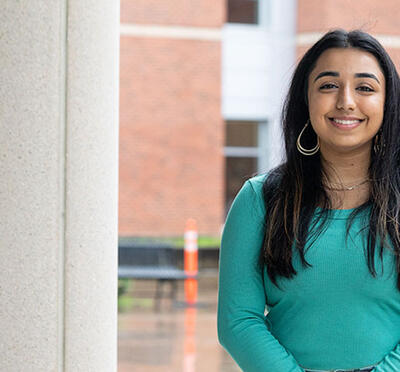Friends, colleagues, and former students mourn the loss of Shoichi “Sho” Kimura, professor emeritus of chemical engineering, who died in June at age 75. His life and legacy are inextricably intertwined with the School of Chemical, Biological, and Environmental Engineering at Oregon State University, where he served on the faculty for more than two decades.
Kimura was born in Japan to a poor family, as World War II was entering its final year. A bright and serious youth, Kimura earned his bachelor’s degree in chemical engineering from Osaka University, graduating at the top of his class in 1967. Although he longed to continue his studies, family duty compelled him to go into industry. At that time in Japan, the best students in technical fields — and only the best students — would as a matter of course
go on to work for Hitachi Ltd. So that is what he did.
In 1975, he was one of 25 young engineers selected by the company from more than 1,000 qualified applicants to receive a full, one-year scholarship for graduate study abroad. With acceptance letters from Stanford, MIT, and the University of Wisconsin, he could have attended virtually any institution he wished. Kimura set his sights on Oregon State, where his ambition was to work alongside Professor Octave Levenspiel, a pioneering leader in the field of chemical reaction engineering.
Kimura, along with his wife, Kiko, and their 2-year-old daughter, Rie, made the voyage across the Pacific to Corvallis, where he earned his master’s degree in just one year. He and Levenspiel would become lifelong friends and frequent collaborators.
In 1978, Kimura made the difficult — and, at the time, almost unheard of — decision to leave Hitachi to pursue further graduate study. He returned to Osaka University to earn his doctorate in chemical engineering and was offered an assistant professor position upon graduating in 1982. He remained there until 1988, when his friend and former mentor Levenspiel encouraged him to apply for a faculty position at Oregon State.
Sensing greater opportunities for career advancement in the United States, Kimura once again packed up his family, which now included two little girls, and returned to Corvallis. He would remain there until his retirement in 2010. Kimura joined the faculty at Oregon State as assistant professor in 1989 and was promoted to associate professor that same year. He attained the rank of full professor in 1996, and he served as interim school head from 1997 to 1999.
Milo Koretsky, professor of chemical engineering, remembers Kimura as a fiercely loyal colleague and respected leader.
“He led by example, demanding excellence in himself and expecting it in others,” Koretsky said. “He did not need to speak much to have his words respected.”
Kimura pursued an active research program in high-temperature growth of ceramics, focusing on silicon nitride and carbon nanotubes. Over the course of his career, he was awarded 20 patents and had dozens of publications in refereed journals. But of all his achievements and honors, he was proudest of two awards for teaching: the Carter Award for Outstanding Teaching, presented in 1991, and the Richard M. Bressler Senior Faculty Teaching Award, which he received shortly before retirement.
Former students attest to his excellence in teaching, fondly recalling both his gentle humor and his tough homework. When students in his senior design class fell short of his rigorous standards, he would tell them: “You’re fired.” Even so, students would line up outside his door during office hours in hopes of getting help with a problem.
“Dr. Kimura was the most intensely committed professor I ever had,” said Nick AuYeung, assistant professor of chemical engineering, who first came to Oregon State in 2006 to earn his doctorate, and who now teaches Kimura’s design courses. “Above all, he epitomized discipline, diligence, and rigor. The demanding workload of his courses was his way of showing devotion to the student.”
Tsai-Chen Wang, director of engineering at WaferTech, studied under Kimura as a doctoral student in the 1990s.
“He was my beloved mentor and advisor, who helped me grow during an important period of my life,” Wang said. “I will miss him dearly.” In retirement, Kimura took up oil painting, revealing a latent but considerable artistic talent. In 2016, one of his paintings received the president’s choice award at the Oregon State University staff art show. In 2018, he presented a portrait of Oregon State’s most famous chemical engineering graduate, Linus Pauling, as a gift to the School of Chemical, Biological, and Environmental Engineering. It is now displayed prominently in the lobby of Gleeson Hall.
“The School of CBEE was my father’s life’s work,” said his younger daughter, Yoshie Kimura, herself a chemical engineer. “He rarely talked about his own research or the technical aspects of engineering. It was the people, his colleagues and students, and the relationships he formed with them that were most important to him.”




